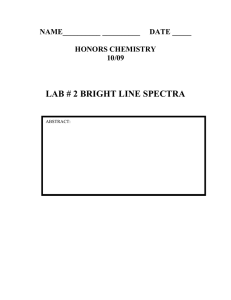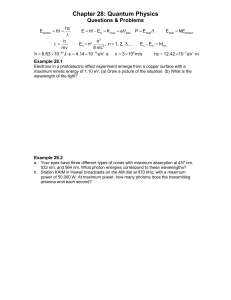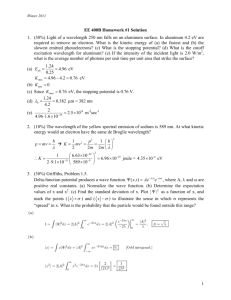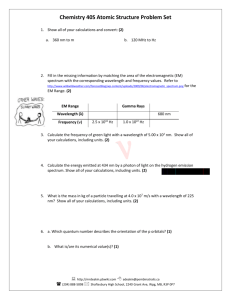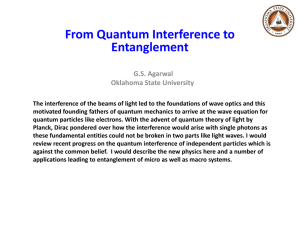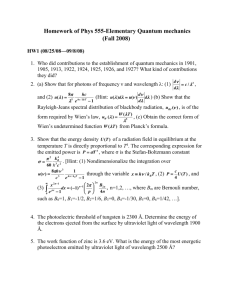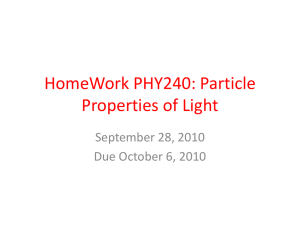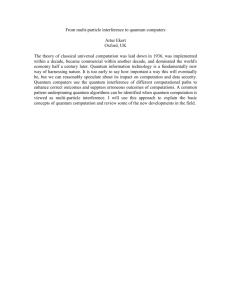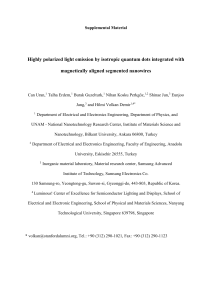Supporting Information Synthesis, luminescent properties of aza
advertisement
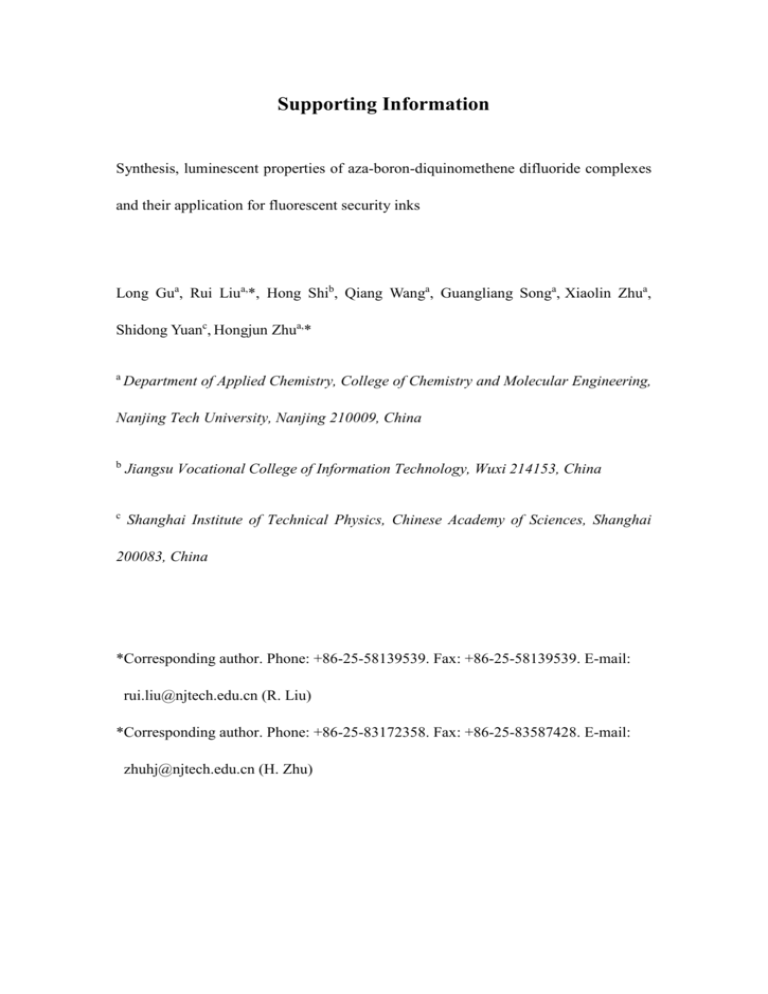
Supporting Information Synthesis, luminescent properties of aza-boron-diquinomethene difluoride complexes and their application for fluorescent security inks Long Gua, Rui Liua,*, Hong Shib, Qiang Wanga, Guangliang Songa, Xiaolin Zhua, Shidong Yuanc, Hongjun Zhua,* a Department of Applied Chemistry, College of Chemistry and Molecular Engineering, Nanjing Tech University, Nanjing 210009, China b Jiangsu Vocational College of Information Technology, Wuxi 214153, China c Shanghai Institute of Technical Physics, Chinese Academy of Sciences, Shanghai 200083, China *Corresponding author. Phone: +86-25-58139539. Fax: +86-25-58139539. E-mail: rui.liu@njtech.edu.cn (R. Liu) *Corresponding author. Phone: +86-25-83172358. Fax: +86-25-83587428. E-mail: zhuhj@njtech.edu.cn (H. Zhu) 1. Determination of quantum yield at different pH conditions. The photoluminescence quantum yields of the B1 and B2 were measured in a mixture of phosphate buffer saline (PBS, pH = 1~12, 20 mM) and THF (1:9, v/v), using 9,10-diphenylanthracene as a reference with a known Ф value of 0.97 in cyclohexane at room temperature. The sample and the reference were excited at the same wavelength (λex = 366 nm), maintaining nearly equal absorbance (0.05). The quantum yield was calculated according to the following Eq. (1): Φ A F n Φ s u ( u )2 u s A F n u s s (1) where Фu and Фs are the fluorescence quantum yields of the sample and the reference, respectively; Fu and Fs are the emission areas of the sample and the reference, respectively; Au and As are the corresponding absorbance of the sample and the reference solution at the wavelength of excitation; nu and ns are the refractive indices of the sample and the reference, respectively. The fluorescence quantum yield of B1 and B2 in different pH were investigated and the results are listed in Table S1. Table S1 The fluorescence quantum yield of B1 and B2 in different pH conditions. pH 1 2 3 4 5 6 7 8 9 10 11 12 B1 ΦPL 0.72 0.75 0.82 0.88 0.89 0.87 0.98 0.80 0.74 0.72 0.74 0.69 B2 ΦPL 0.46 0.55 0.56 0.53 0.84 0.75 0.81 0.81 0.61 0.62 0.61 0.60 2. Thermal properties Fig S1. DSC thermograms of B1 and B2 under a nitrogen atmosphere at a heating rate of 10 °C min−1. Table S2. Thermal properties of complexes B1 and B2 complex Tm (oC) B1 257 B2 383 3. The solvatochromic effect Hexane Toluene THF DCM ACN MeOH Normalized Absorption (a.u.) 1.0 0.8 0.6 0.4 0.2 Normalized Emission Intensity (a.u.) Fig S2.Normalized absorption and emission spectra of B1 in different solvents (1 × 10-5 M) 1.0 Hexane Toluene THF DCM ACN MeOH 0.8 0.6 0.4 0.2 0.0 0.0 400 450 Wavelength (nm) 500 500 600 Wavelength (nm) Fig S3.Normalized absorption and emission spectra of B2 in different solvents (1 × 10-5 M)
